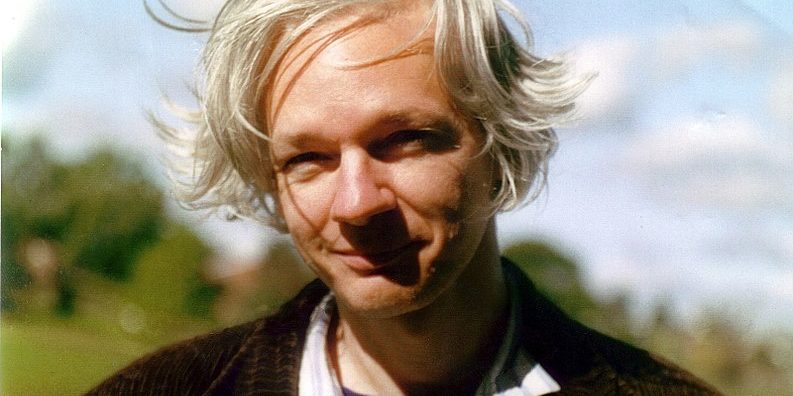“Journalists are allowed to request documents that have been stolen and to publish those documents.” So wrote U.S. federal Judge John Koeltl in a 2019 opinion dismissing a lawsuit filed by the Democratic National Committee against Julian Assange, Wikileaks and others. Assange published documents on the Wikileaks website in the very manner the judge described. Despite this, Julian Assange has been in solitary confinement in Britain’s maximum security Belmarsh prison for over three years. Before that, he spent seven years living in the cramped Ecuadorian embassy in London. Ecuador granted Assange political asylum as he faced mounting persecution from the U.S. government for his role in exposing U.S. war crimes in Iraq and Afghanistan.
The U.S. is seeking Assange’s extradition from the United Kingdom to face espionage and conspiracy charges and up to 175 years in prison. Assange’s legal team is appealing the U.K.’s approval of the extradition request. Meanwhile, a new case related to Wikileaks is before Judge Koeltl: journalists and several of Assange’s attorneys have sued the Central Intelligence Agency and former CIA Director Mike Pompeo, alleging the CIA spied on them when they visited Assange in the Ecuadorian embassy, recording conversations and secretly copying their phones and laptops.
“I’m a New York lawyer,” Deborah Hrbek, an attorney who met with Assange at the embassy several times, said at a news conference announcing the lawsuit. “I have the right to assume that the U.S. government is not listening to my private and privileged conversations with my clients, and that information about other clients and cases I may have on my phone or laptop are secure from illegal government intrusion. This is not just a violation of our constitutional rights. This is an outrage.”
CIA spying on Julian Assange and his visitors became public through a Spanish court case against a company, UC Global, and its director, David Morales. UC Global was hired by Ecuador in 2012 to provide security for its embassy in London. The CIA, the new lawsuit alleges, recruited UC Global in January 2017, with the help of the late casino billionaire and Republican donor Sheldon Adelson, when Morales was at a gun convention in Las Vegas. Morales returned to Spain and, according to the lawsuit, told his employees that “the company would now be operating ‘in the big league’ and for the ‘dark side’ with the CIA.”
Donald Trump had been a big fan of Wikileaks during the 2016 campaign, after the site published thousands of emails stolen from the Democratic National Committee and from Hillary Clinton and members of her inner circle. “WikiLeaks, I love WikiLeaks,” Trump said in a speech in October. Then, in March, 2017, Wikileaks published “Vault 7,” leaked CIA information that the agency itself later admitted was “the largest data loss in CIA history.”
Shortly after the first tranche of Vault 7 documents was published, Mike Pompeo blasted Wikileaks in his first public speech as Trump’s new CIA Director:
“WikiLeaks walks like a hostile intelligence service and talks like a hostile intelligence service…It overwhelmingly focuses on the United States, while seeking support from anti-democratic countries and organizations. It’s time to call out WikiLeaks for what it really is: a nonstate hostile intelligence service.”
Last year, Yahoo News exposed a 2017 CIA plot to kidnap and possibly kill Julian Assange while in the Ecuadorian embassy. Yahoo reported that the plot was discussed “at the highest levels of the Trump administration.”
Plots to assassinate a publisher, warrantless surveillance of private conversations and secret duplication of attorneys’ and journalists’ private electronic devices all echo the notoriously criminal conduct of the Nixon administration in the early 1970s.
Back then, the target was whistleblower Daniel Ellsberg who leaked The Pentagon Papers, a secret history of U.S. involvement in Vietnam that detailed the extent to which successive U.S. administrations lied to the public about the war. Dan Ellsberg was charged with espionage and faced life in prison.
President Nixon’s obsession with leaks led him to order the burglary of Ellberg’s psychiatrist’s office, starting the chain of events that led to the Watergate scandal and Nixon’s resignation. When the presiding judge in Ellsberg’s trial learned of the government’s illegal conduct, he dismissed the case.
Fifty years later, First Amendment protections for publishers of government secrets, illegal CIA spying and more are before a federal judge again. Judge John Koeltl, as a young lawyer, served on the Watergate Special Prosecution Force. Now presiding over this case, filed by journalists and Assange’s attorneys, expect more CIA criminality to come to light. President Biden and his Justice Department should immediately drop all charges against Julian Assange.
This column originally appeared on Democracy Now!




